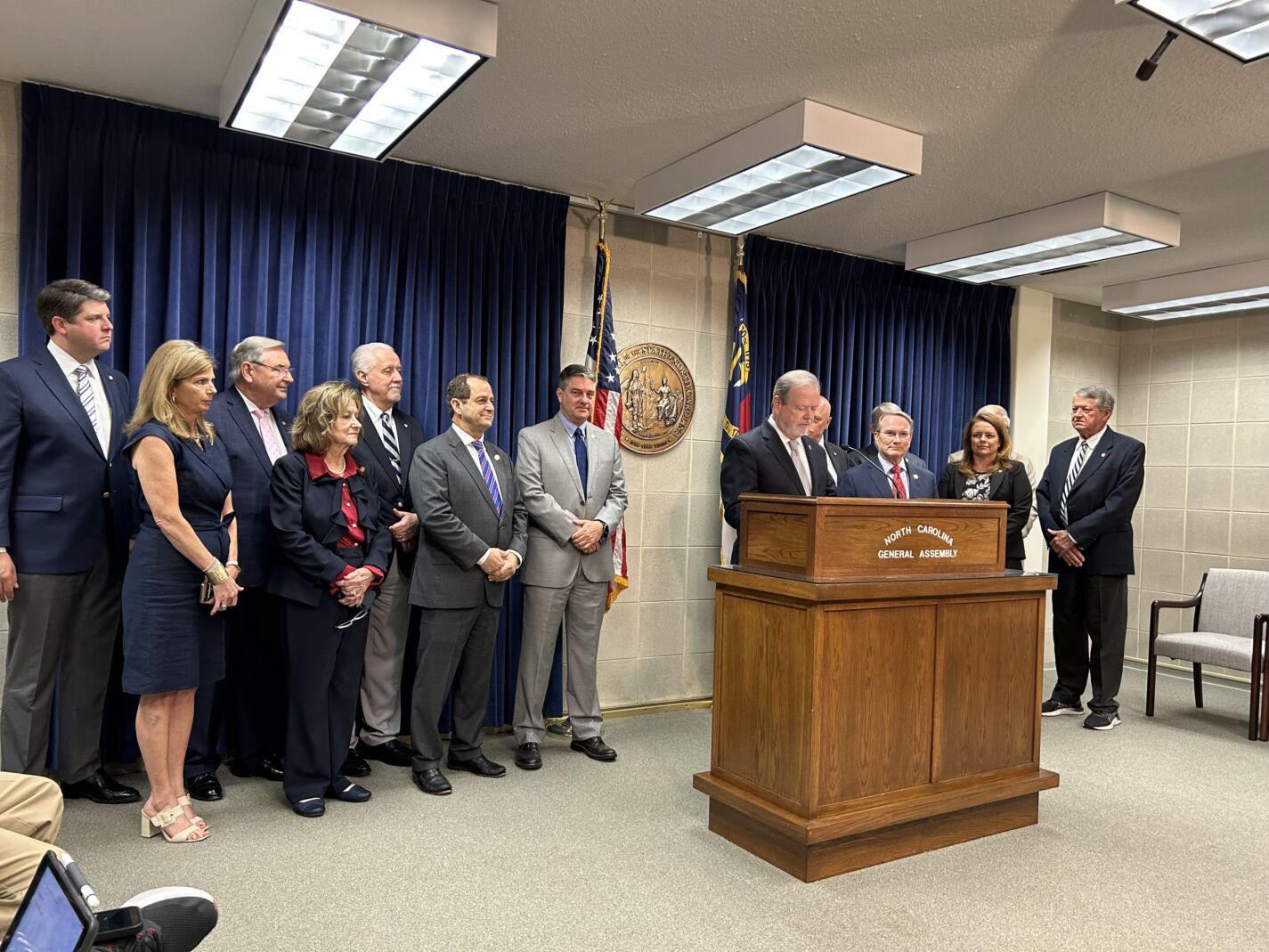On Monday, Senate Republicans unveiled a plan to make the North Carolina state and local elections boards bipartisan.
Senate Bill 749, No Partisan Advantage in Elections, restructures the North Carolina State Board of Elections by splitting the appointments between the majority and minority legislative leaders.
The State Board of Elections (NCSBE) would be composed of four majority and four minority party appointments. All would come from the legislature, with the following allocation:
- Two members appointed by the president pro tempore of the Senate.
- Two members appointed by the speaker of the House of Representatives.
- Two members appointed by the minority leader of the Senate.
- Two members appointed by the minority leader of the House of Representatives.
Local election boards would be appointed in a similar fashion, but with only one appointment per legislative leader instead of two. Local boards would only consist of four members as opposed to eight.
“We are living in a time of intense political polarization,” Senate Leader Phil Berger, R-Rockingham, said. “Having a Board of Elections that is controlled by one party only sows distrust in our elections and we must find a new approach to quell concerns that cast doubt on the fairness of our elections.”
A recent poll from the John Locke Foundation found that only 50% of North Carolinians think future elections will be free and fair.
Last week, Senate leaders introduced legislation to address election integrity. Republicans said S.B. 749 further addresses concerns about partisanship playing a role in elections administration.
Current law
Currently, three out of five members of the NCSBE are allowed to be from the same political party, allowing partisan decisions to be made.
Additionally, all appointments are currently made by the governor.
For local boards, the NCSBE “appoints four members – two Democrats and two Republicans – to each county board of elections,” according to the NCSBE website. “The state chairs of the Republican and Democratic parties recommend three registered voters to the State Board.”
The NCSBE chooses two of the three recommendations by party chairs, and the governor chooses the fifth and final appointee, which will be the deciding vote on partisan issues.
Under the current law, when North Carolina has a Democratic governor, Democrats have the ability to exert control over all boards of elections, including local boards in Republican counties.
Similarly, when the governor of North Carolina is a Republican, Republicans have the authority to control all boards of elections, even in counties that predominantly lean Democratic.

How senate bill 749 would change the law
The proposed Senate plan alters the existing framework by establishing mandatory bipartisan boards at both the state and county levels.
S.B. 747 would eliminate partisan decision-making. Under S.B. 747, decisions must be bipartisan.
“We want a Board of Elections that can come to bipartisan compromise, instead of pushing partisan policy goals,” Sen. Paul Newton, R-Cabarrus, said. “Elections are critical to our democracy and any changes should be made by consensus.”
On local boards, a decision would require agreement from at least three out of the four members. On the state board, at least five out of the eight members would need to reach a consensus for a decision to be made.
If bipartisanship cannot be achieved, it could lead to gridlock. There is currently no process for decision-making in gridlock scenarios.
If the board fails to reach a decision on the appointment of an executive director or chair within 30 days, the responsibility falls upon the General Assembly to make the selection. However, it is important to note that the chair must be chosen from among the four existing board members and does not possess tie-breaking authority.
Furthermore, the board has complete authority over the executive director, and the director cannot make independent decisions.
Opposition
House Minority Leader Robert Reives, D-Chatham, who would gain appointment power if S.B. 749 passes, said he opposes the bill.
“Republican leadership in the General Assembly has once again introduced legislation to claw powers away from the governor and into their own hands,” Reives said. “S.B. 749 would, by design, lead to gridlock on elections boards and empower Republican-led courts to settle disputes.”
North Carolina Democratic Party Chairwoman Anderson Clayton released a statement in opposition to the bill after Republicans introduced it at a press conference.
“When the voters elected Governor Cooper twice, they did so with the expectation and desire that he would be making appointments to the Board of Elections — but we know the NCGOP’s playbook is to just change the rules instead of trying to win fair and square on the strength of their ideas,” Clayton said.
Gov. Cooper is expected to veto the legislation.
What happens next?
During the press conference, Sen. Berger said that House leadership supports the appointment power changes to the NCSBE, but they have differing opinions regarding appointments to the local boards.
Berger expects the two chambers will be able to work out those differences.
S.B. 749 will go through the normal committee process and the Senate Committee on Redistricting and Elections will hear the bill, along with S.B. 747, on Wednesday, according to a spokesperson for Sen. Berger.
If the bill is passed and Cooper vetoes it, all Republicans would need to be present or vote in favor of overriding Cooper’s veto if the legislation does not receive any Democratic support.
The Senate Rules committee is expected to hear the bill either late this week or early next week.